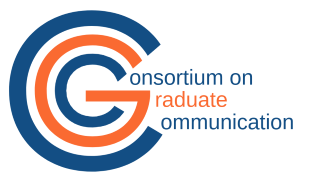Wednesday, June 21st, 10:00 – 11:00 am EDT
Facilitating underrepresented minority student success: Finding the right balance of challenge & support
Sharon Fries-Britt, Ph.D., Professor of Higher Education, University of Maryland, College Park
The steady increase of students enrolled in higher education who come from racial and ethnic backgrounds that are traditionally underrepresented minorities (URMs) represents an important measure of educational access and success. However, more recently institutions have focused their attention on degree completion rates of URM students as a more meaningful measure of advancing equity in higher education. Navigating the academy to degree completion is not always easy for many URM students as they continue to encounter barriers that can impede their sense of belonging, psychological well-being and academic performance. Institutional agents can play a critical role facilitating the success of this important student population through effective advising and relationship building. Join us as we highlight key factors that can fortify connections and amplify success for URMs in the academy.
Bio: Dr. Sharon Fries-Britt is a University of Maryland Distinguished Scholar. Her research examines the experiences of high achieving Blacks in higher education, underrepresented minorities (URMs) in STEM fields and issues of race, equity and diversity. Her research has been funded and supported by the Lumina Foundation, National Society of Black Physicists, NSF and the Bill & Melinda Gates Foundation.
Dr. Fries-Britt is a co-author and co-editor of the forthcoming book Building Mentorship Networks to Support Black Women: A Guide to Succeeding in the Academy (Routledge Press). Her monograph, Leading After a Racial Crisis: Weaving a Campus Tapestry of Diversity and Inclusion provides important insights for how leaders can address campus tensions following a racial crisis. She is the recipient of numerous awards including the AERA 2021 Social Justice in Education Award, the UMD Alumni Excellence in Research Award (2019), UMD Outstanding Faculty Award Office of Multiethnic Student Education (2016).
Wednesday, June 21st, 5:30 – 6:30 EDT
Strengthening Connections between Writing & Well-being for Graduate Students
Lisa Russell-Pinson, Ph.D., Associate Teaching Professor of Writing, University of North Carolina at Charlotte
Graduate communication specialists (GCSs) tasked with providing writing support typically focus their efforts on ensuring that writers’ texts meet the specific genre conventions of their disciplines; they also guide writers through the process of producing texts efficiently. Such discoursal and process-focused support is essential to helping students reach their potential as scholarly writers. While these forms of support are the most visible, many GCSs also provide another type of support that is just as—or perhaps even more vital to students’ success as academic writers: support for these writers’ well-being.
This talk will focus on the recent research on writing and well-being for graduate students, highlighting how much graduate writing programming already fosters opportunities to increase writers’ well-being. It will also present ways that GCSs can strengthen and expand graduate student well-being through writing initiatives on their campuses.
Bio: Lisa Russell-Pinson teaches writing classes to matriculated graduate students and develops and delivers support programming for doctoral writers. Lisa’s current research focuses on doctoral students’ experiences in the dissertation process, especially factors that impede progress and interventions that help writers succeed. Her recent work on academic writing can be found in the Journal of Second Language Writing (2019), Learning from the Lived Experiences of Graduate Student Writers (2020), Mentorship in Scholarly Publication: Narratives and Practices (forthcoming), and Writing Together: Building Social Writing Opportunities for Graduate Students (forthcoming). She has taught English in the U.S. and varied settings abroad, including the Czech Republic, Georgia, Germany, Slovakia, and Spain. In 2022, she was selected as an English Language Program Specialist by the U.S. Department of State.
Friday, June 23rd, 9:30–10:30 am EDT
Sustainable Practices for Graduate Communication Support
Michelle Crow, Ph.D., Founding Director, English Language Support Office, Cornell University
What practices can graduate communication support (GCS) professionals use to enhance the longevity and impact of GCS initiatives? During this interactive presentation, Dr. Michelle Crow, founding director of the Cornell English Language Support Office, will explore the sustainability of CGS, looking to theories and practices used to sustain a similarly complicated university initiative: Writing Across the Curriculum (WAC) programs. She will introduce the whole systems approach (WSA) to WAC program development, which is a theoretical framework, methodology, and set of strategies designed to guide WAC directors in launching and developing sustainable programs (Cox, Galin, & Melzer, 2018). She will then share insights from an ongoing longitudinal study of five WAC programs using the WSA, focusing on the practices that have helped these programs stay viable during years marked by a global pandemic, university austerity measures, and shifting university priorities. She will then consider the implications for GSC practices, inviting the audience to reflect on their own contexts, challenges, and affordances.
Bio: Michelle (Cox) Crow, PhD, is the inaugural director of the English Language Support Office, a writing and speaking support program for multilingual graduate and professional students at Cornell University. She is co-editor (with Steve Simpson, Nigel Caplan, and Talinn Phillips) of Supporting Graduate Writers: Research, Curriculum, and Program Design (2016, University of Michigan Press) and co-author (with Jeffrey Galin and Dan Melzer) of Sustainable WAC: A Whole Systems Approach to Launching and Developing Writing Across the Curriculum Programs (2018, NCTE, awarded Best Monograph by the WAC Clearinghouse & Association for Writing Across the Curriculum in 2021). With Nigel Caplan, she founded the Consortium of Graduate Communication in 2014, and served on the board until 2017. Her scholarship focuses on writing program administration, multilingual writing pedagogy, and graduate writing support.


Recent Comments